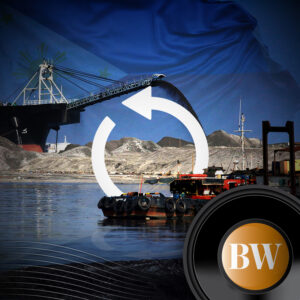[B-SIDE Podcast] How can Philippines restore Manila Bay?

Follow us on Spotify BusinessWorld B-Side
Manila Bay has been exposed to rapid urbanization over the years and is now in need of rehabilitation.
In this B-Side episode, Jerwin Baure, a marine science researcher, discusses with BusinessWorld reporter Sheldeen Talavera how Manila Bay has changed over the years and how it can be restored.
“I think people do not realize that Manila Bay is actually a big body of water. It’s not just the sea that’s located along the Roxas Boulevard. But actually, Manila Bay is a big body of water off the coast of Bataan,” Mr. Baure said.
“There are still a lot of marine organisms found there like crabs, fish, and other kinds of marine ecosystems that can be found in the country,” he said.
The Supreme Court issued a ruling on Manila Bay in 2018, directing 13 government agencies to clean up, rehabilitate, and preserve it, as well as restore and maintain its waters to a level suitable for swimming, skin diving, and other recreational activities.
According to Mr. Baure, one way of doing this is by planting mangroves.
Historically, there were around 500,000 hectares of mangroves all over the country, but they have been declining since the 1900s, primarily due to conversion into fishponds, he said.
“Mangroves were historically found all over Manila Bay, and these trees can serve as nursery grounds for fish. They provide habitats for many species and they can also provide natural protection against storm surges,” Mr. Baure said.
“They can also improve the water quality because mangroves can filter out pollution coming from the land and, also, they serve as habitat for migratory birds,” he added.
In August, President Ferdinand R. Marcos, Jr., issued a verbal order for the suspension of 22 reclamation projects in Manila Bay, pending a review of their environmental and social impacts.
The Department of Environment and Natural Resources is working on a cumulative impact assessment with a team of scientists consisting of physical and chemical oceanographers, fishery specialists, marine biologists, and engineers.
“When we discuss the benefits…, we also need to ask who benefits from these projects. Will it be the private investors? Or will it really [truly care about] marginalized people, since if reclamation projects continue, fishermen will lose their livelihood,” Mr. Baure said.




